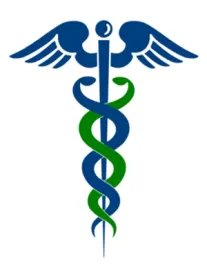CMS issued a final rule, published in the Federal Register on Friday, June 10, 2016, updating how the performance of ACOs participating in the Medicare Shared Savings Program (MSSP) is measured and compensated. This rule is part of an ongoing effort to move Medicare away from a model that pays for each service provided towards a system that rewards physicians for coordinating with each other to improve quality of patient care and outcomes while reducing cost. CMS views ACOs as a major part of this transition, and according to its press release, believes that the current updates should help more ACOs successfully participate in the MSSP by “improving the shared savings payment methodology and providing a new participation option for certain ACOs to move to the more advanced tracks of the program.” The major changes relate to three areas:
1. Benchmarking Methodology
As we anticipated, the final rule changes how ACOs are paid by basing one payment factor on whether the ACO is able to deliver high-quality care at a lower cost compared to other providers in its region. CMS accomplishes this by establishing a phased-in approach to incorporate regional fee-for-service expenditures into calculations for resetting, adjusting, and updating an ACO’s benchmarks. This change recognizes that health care costs vary among different regions of the country. Specific details on how this approach will be operationalized can be found in the final rule’s fact sheet.
2. Transition to Performance-Based Risk
The final rule establishes a “smoother and quicker” transition to more advanced tracks (with financial risk to the ACO) for certain ACOs by allowing an extra year in their first participation agreement before the ACO takes on financial risk. CMS believes that this change will promote the entry of more ACOs in the MSSP and encourage those already participating to transition to a more advanced-based risk track.
3. Financial Reconciliation Calculations
CMS also defines timeframes and other criteria for reopening a determination of ACO shared savings or shared losses to correct financial reconciliation calculations. Reopening is limited to “good cause” and may occur no later than four years after the date of the notification to the ACO of the initial determination of shared savings or shared losses for the performance year. However, CMS may reopen at any time in the case of fraud.
Impact on ACOs
The goal of these updates is to increase participation in the MSSP through the addition of new ACOs, while encouraging the progression of existing ACOs to performance-based risk tracks. In general, these changes should enable more accurate calculations of shared savings and shared losses by including regional data as a factor in benchmarking. No longer will rural ACOs be compared to the same benchmarks as ACOs in higher-cost urban areas, for example. These “incentives” could lead to increased participation in the MSSP and will likely add to the accelerating tide of the transition toward value-based Medicare payments. At the very least, the incentives will remove a common reason – or perhaps excuse – for not participating in the MSSP or for not progressing to a more advanced track.






 />i
/>i
